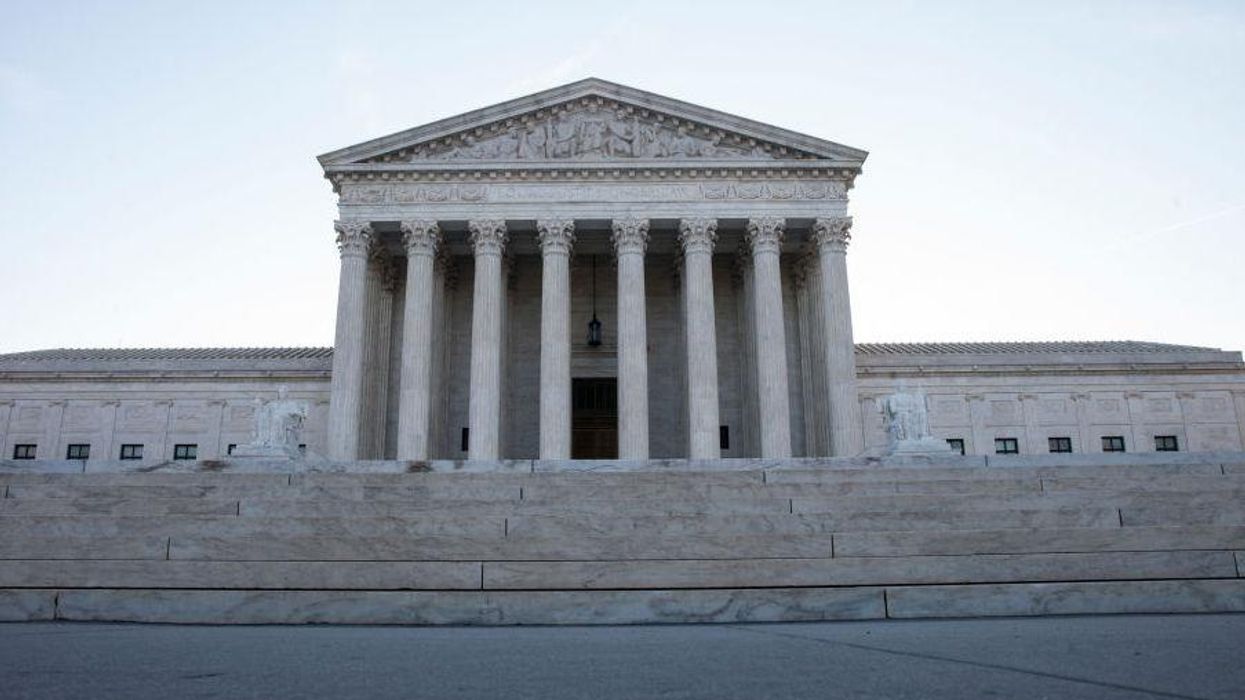
Zach Gibson/Getty Images

Religious freedom wins again
The Supreme Court has once again ruled against pandemic-related restrictions enacted by California Gov. Gavin Newsom (D) that impacted in-home religious gatherings, like prayer meetings and Bible studies.
In a split 5-4 ruling, the Supreme Court said a California restriction prohibiting more than three households from gathering indoors is likely unconstitutional because the state seemingly favors secular activities with fewer restrictions.
"California treats some comparable secular activities more favorably than at-home religious exercise, permitting hair salons, retail stores, personal care services, movie theaters, private suites at sporting events and concerts, and indoor restaurants to bring together more than three households at a time," the majority opinion stated.
The opinion explained, "Applicants are likely to succeed on the merits of their free exercise claim; they are irreparably harmed by the loss of free exercise rights 'for even minimal periods of time'; and the State has not shown that 'public health would be imperiled' by employing less restrictive measures."
In fact, the majority opinion declared that public health measures demand scrutiny "whenever they treat any comparable secular activity more favorably than religious exercise."
"[G]overnment regulations are not neutral and generally applicable, and therefore trigger strict scrutiny under the Free Exercise Clause," the opinion said. "It is no answer that a State treats some comparable secular businesses or other activities as poorly as or even less favorably than the religious exercise at issue."
Justice Elena Kagan, who wrote the minority opinion, explained she disagreed with the majority because, in her estimation, California is treating at-home activities, religious and secular, the same.
California limits religious gatherings in homes to three households. If the State also limits all secular gatherings in homes to three households, it has complied with the First Amendment. And the State does exactly that: It has adopted a blanket restriction on at home gatherings of all kinds, religious and secular alike. California need not, as the per curiam insists, treat at-home religious gatherings the same as hardware stores and hair salons—and thus unlike at-home secular gatherings, the obvious comparator here. As the per curiam's reliance on separate opinions and unreasoned orders signals, the law does not require that the State equally treat apples and watermelons.
Notably, Chief Justice John Roberts did not sign the minority opinion, but joined his liberal colleagues by saying he would have allowed the lower court's ruling to stand.
The ruling overturned a decision from the Ninth Circuit Court of Appeals that upheld the restriction on grounds that California was treating at-home religious and secular activities the same, NPR noted.
As the majority opinion noted, Friday's ruling "is the fifth time the Court has summarily rejected the Ninth Circuit's analysis of California's COVID restrictions on religious exercise."